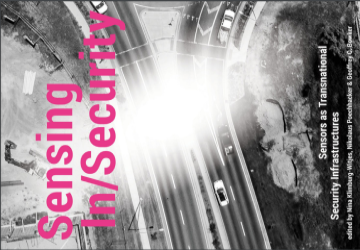New Course on Security and Technology
This semester starts very interesting. After some meetings and long and interesting discussions a small group at the MCTS gathered exploring issues of Science & Technology in the context of security issues. As part of this endeavour, we assembled a course on diverse issues of security and technology in contemporary societies where we are able to bring together a wide range of different perspectives and disciplines. The course is called Technology and Security in Society: Contemporary Risks and Challenges and is organized together with Michael Clormann, Nina Witjes, Silvan Pollozek, Peter Müller, Sarah Schönbauer, Sarah Widmer, and Alexander Wentland (yes. We are a real crowd).
Course Description:
Security has become a major issue in contemporary societies – not just after 9/11 – and is spreading into an increasing number of areas in daily life. Notions as securitization or the surveillance state are slipping into academic as well as political and everyday discourses. Thus, whole fields of study are researching this restructuring of societies towards a paradigm of security on several levels, e.g. security studies, surveillance studies, critical criminology, to name just a few. However, technology plays an increasingly important role in these shifts, may it be through surveillance in border control regimes, satellite technologies impacting international relations, or predictive analytics in police work and trials, enabling and being shaped by the rationalities and ideologies of these distinct fields. In this course we will therefore explore the different areas of social life in which security technologies are embedded and thus reflect on the manifold issues raised and functions fulfilled by them in their specific arenas. We will also touch upon the question of responsibility and accountability for such technologies and how technology implementation and usage yield political qualities. In each of the sessions, a distinct area of security technologies will be discussed drawing on concepts from sociology, security studies, STS, critical geography, and media studies, providing a broad range of perspectives on the matter.
The different sessions will tackle issues of:
- Vulnerability and Security of Critical Infrastructures
- Algorithmic Security Governance & the City
- Legal Norms and Values
- Space in/of Security: Satellites and Space Debris
- Controlling Individuals, Controlling Populations: Border and Health Security
I am looking forward to this semester and I am really keen to see how it unfolds, as the course is not aiming at STS students, but is located at the School of Management (TUM). It will be an interesting experience to learn also management and engineering perspectives on these matters – and I hope that it will also be worthwhile for our students 🙂






